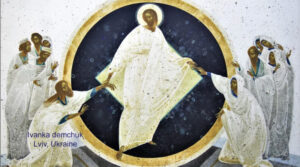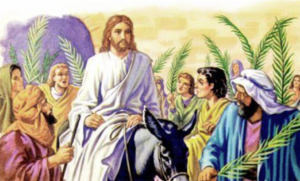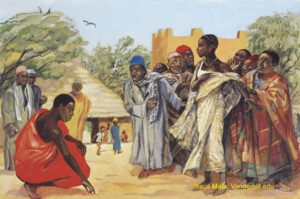“The sisters of Lazarus sent word to Jesus, saying,
‘Master, the one you love is ill.’
When Jesus heard this he said,
‘This illness is not to end in death,
but is for the glory of God,
that the Son of God may be glorified through it.’” John 11:1-3
“Jesus said to her,
‘Did I not tell you that if you believe
you will see the glory of God?’
“So they took away the stone.
And Jesus raised his eyes and said,
‘Father, I thank you for hearing me. . . .’
And he cried out in a loud voice,
‘Lazarus, come out!’
The dead man came out.
“So Jesus said to them, ‘Untie him and let him go.’“ John 11: 40-44
In the section before this passage, Jesus had been walking in the Temple when he was asked, “How long are you going to keep us in suspense?* If you are the Messiah, tell us plainly.” He answered that his works, done in his Father’s name, testify to that. When he added, “The Father and I are one” some in the crowd picked up rocks to stone him and tried to arrest him. So, Jesus left the area, crossing the Jordan and taking refuge in the place where John first baptized. (John 10, 23-25, 39-40)
The section of John’s Gospel immediately after Lazarus is raised from the dead tells of the Sanhedrin meeting in which the high priest Caiaphas states that “it is better for you that one man should die instead of the people, so that the whole nation may not perish.” And then the Sanhedrin began planning to kill him. (John 11: 49-50)
So, when Jesus says, “This illness is not to end in death, but is for the glory of God, that the Son of God may be glorified through it” (John 11:3), he signals to us that raising Lazarus to life would add fuel to his detractors’ desire to end Jesus’ own life. Reading today’s passage in the light of this, we should pay attention to these somewhat final lessons the teacher, Jesus, is giving to his student disciples (and to us). What is the purpose of the Incarnation of God in Jesus and where are the disciples in comprehending it and in living it when he is no longer with them physically?
WHO IS THIS JESUS?
Martha knows Jesus is someone to whom God listens, but does she know him to be God? Imagine what Jesus was thinking about the purpose of his mission and the level of comprehension he was hearing in her response and that of the gathered people. What had they learned of what he tried to communicate to them? What about us? Do we know Jesus? Do we know the Father? What more is there about Jesus, the Father, Son and Holy Spirit that we should have come to know by now?
In these remaining days of Lent, let us assess how much more God wants to show us. Let us make more time for God and for making God’s hopes and dreams for us a reality in us.*
MY VOCATION
In the About section of our parish website, there are two items on the human vocation which is to direct our attention to becoming our own unique “image and likeness of God.” (Genesis 1: 26-27):
- My Personal Vocation (My calling)
- Everyone Has a Vocation
Spend these last days of Lent reflection on this, i.e., on your life as a reflection of your God-imparted calling so that, when Easter Sunday comes, you will be able to profess with confidence and enthusiasm the re-affirmation of your Baptismal Vows, a public declaration of your personal and our communal union with Christ in his death and resurrection.
Sister Loretta
* Someone in our last Bible Study session remarked that if you want to know who or what you really worship, look at your calendar and your bank account expenditures.




